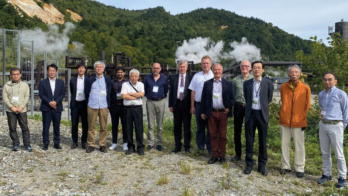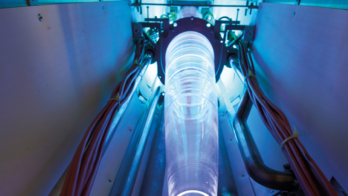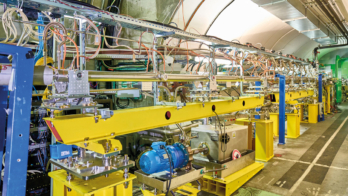Researchers at the US Department of Energy’s Thomas Jefferson National Accelerator Facility (JLab) have produced first light from their 10 kW free-electron laser (FEL). This device has been upgraded from the “1 kW infrared demonstration” FEL that broke power records by delivering 2.1 kW of infrared light in 1999. Only one-and-a-half years after the 1 kW FEL was dismantled, the newly improved FEL, designed to produce 10 kW of infrared and 1 kW of ultraviolet light, is undergoing commissioning with the goal of producing 10 kW by the end of the summer.
As part of its mission to probe deep inside the atom’s nucleus with electrons, JLab has developed superconducting technology for accelerating electrons, and this offers two commanding cost advantages for FELs. The laser can stay on for 100% of the time instead of only 1% or 2%, and more than 90% of the energy that is not converted to useful light in a single pass can be recycled.
The FEL upgrade project is funded by the US Department of Defense’s Office of Naval Research (ONR), Air Force Research Laboratory and the Joint Technology Office. The navy’s interest in this technology is the development of an electrically driven tunable laser that can operate at infrared wavelengths, where light is most efficiently transmitted in the atmosphere. This would have potential applications in shipboard defence.
During the two-and-a-half years that the 1 kW FEL operated, it broke all existing power records for tunable high-average power lasers. It was used by more than 30 different research groups representing the navy, NASA, universities and industry for a variety of applications. These ranged from the investigation of new cost-effective methods for producing carbon nanotubes and understanding the dynamics of hydrogen defects in silicon, to investigating how proteins transport energy.





